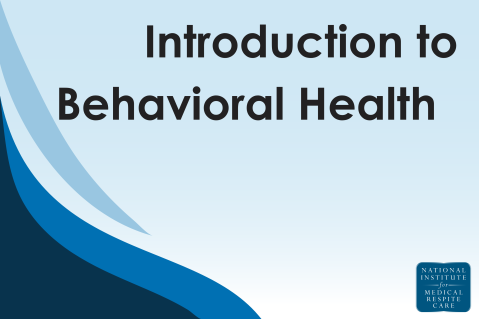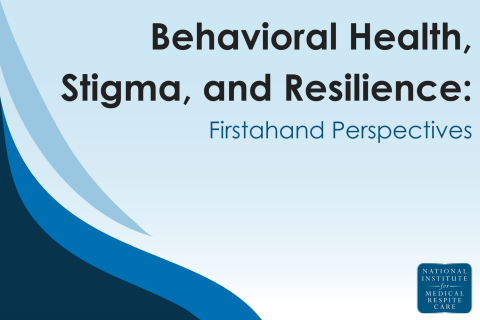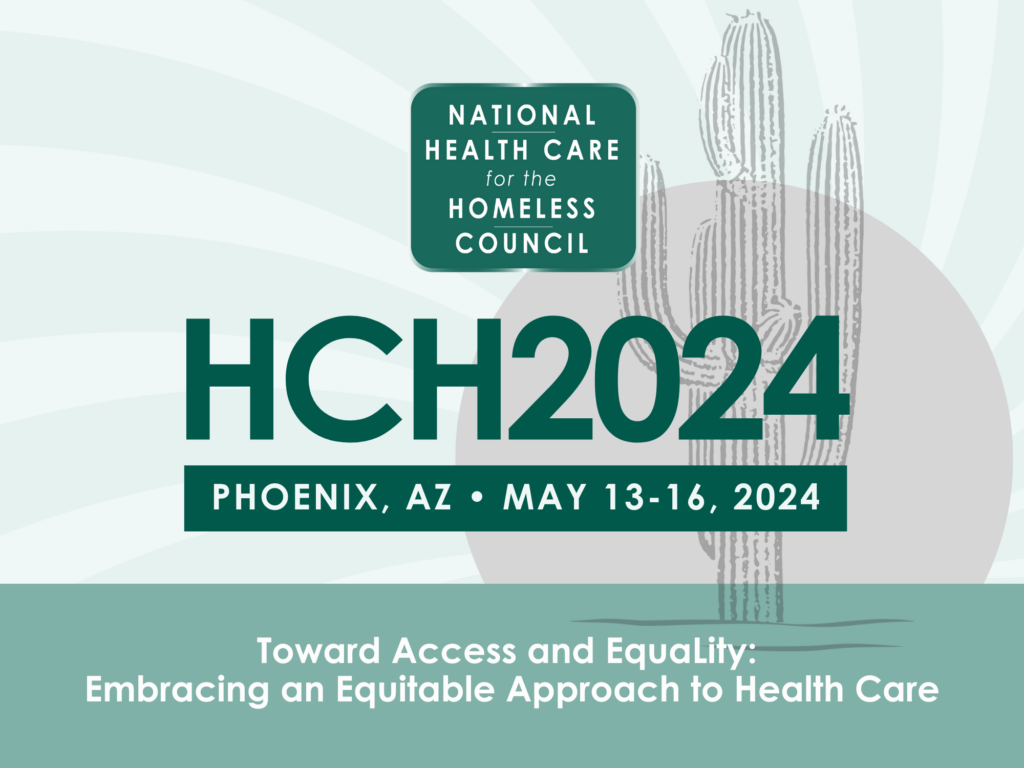Medical Respite Care: Introduction to Behavioral Health
Many clients who are referred to and engaged with medical respite programs have co-occurring behavioral health conditions and needs. This course provides an overview of behavioral health conditions, and introduces ways programs can supporting individual with behavioral health conditions. This course is 60 minutes in length. If you are logged in, all of your progress […]
Medical Respite Care: Introduction to Behavioral Health Read More >>






